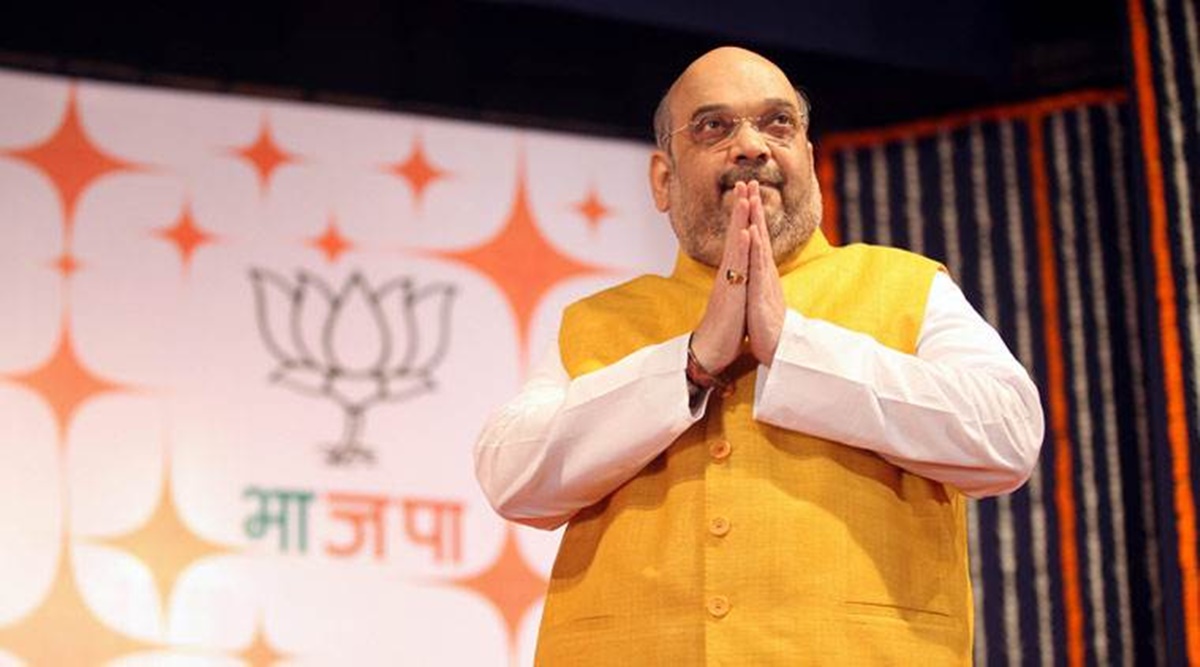
The Indian Express
Hindi not competing with any regional language, says Amit Shah
“Hindi has only complemented and strengthened other regional languages. It has never competed with any local language," Amit Shah said on Hindi Diwas 2020.
by Deeptiman TiwaryHome Minister Amit Shah on Monday pushed for greater use of Hindi by officials and the youth saying that India’s culture and value systems had remained protected primarily because of the language. He also emphasised that Hindi was not competing with any regional language. “Hindi has only complemented and strengthened other regional languages. It has never competed with any local language. It is important that this is clear to the entire country,” Shah said.
Delivering a video address on Hindi Diwas, Shah said, “Hindi’s strengths lie in its scientific nature, simplicity, easy comprehension and acceptability. That is why in 1949 it was declared as India’s official language. The unhindered flow of India’s culture, civilisation and value systems has stayed alive and protected primarily because of Hindi.”
Shah said that across the length and breadth of a diverse India, Hindi was the most prominent among regional languages in uniting the nation. “Hindi along with Braj, Bundelkhandi, Awadhi, Bhojpuri and other languages are examples of how they have strengthened India’s diversity. Hindi has been a powerful medium of national integration and pride since freedom struggle,” he said.
https://images.indianexpress.com/2020/08/1x1.png
Shah suggested that the prominence of Hindi was enshrined in the Constitution. “According to Article 351, Hindi’s prosperity has to be ensured taking along other regional languages and their styles; wherever necessary, improving its vocabulary by accepting words primarily from Sanskrit and minimally from other languages,” he said.
To ensure this constitutional responsibility, he added, it is important that official work is done in Hindi and then translated in other languages. “I urge upon senior officials of all central government ministries, departments, and banks that they primarily use Hindi in official work so that others get inspiration,” he said.
He also urged the youth to speak in Indian languages and asked parents to promote regional languages while talking to their children. “It is important that the next generation is provided most of its information in Hindi so that they are inspired to primarily work in Hindi,” Shah said.
Monday’s address could be seen as a fairly toned-down version of his last speech on Hindi Diwas. His last speech, in 2019, had created considerable controversy as he pushed for the idea of “One Nation, One Language”. In his last address, Shah had said, “India is a country of different languages. Every language has its own importance. But it is absolutely essential that the entire country has one language that becomes the identity of the nation in the world. If there is any language that can tie the whole country in one thread, it is the most spoken language of Hindi.”
The statement drew sharp reactions from opposition parties. While CPM called it an attack on the core principles of India’s diversity, Karnataka Congress leader Rajeev Gowda reminded the BJP that Article 29 of the Constitution honoured multiple languages.
In November last year, the Ministry of Home Affairs had to even clarify in Parliament that it had no plans to push for Hindi as India’s main language. To a question on the issue, MoS (Home) G Kishen Reddy replied in Rajya Sabha, “There is no proposal for one nation one language.”
The MHA’s assertion itself came in the backdrop of repeated praise by PM Narendra Modi of various languages, in particular, Tamil. In several of his then speeches, Modi had made a conscious effort to speak Tamil and reinforce cultural motifs from the region.
Promotion of Hindi as India’s national language is an old ideological project of the Sangh Parivar and the BJP. Staunch loyalty to this ideological position has even proved to be a roadblock for the BJP in expanding its influence in southern states that have strong local language roots and sentiments.